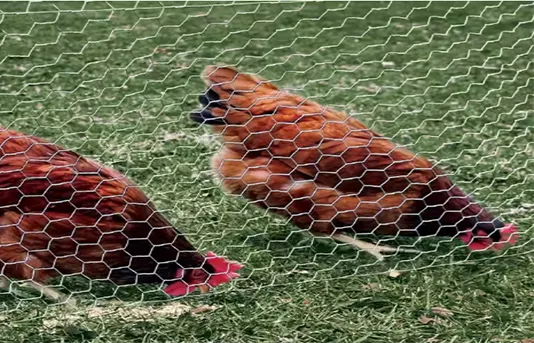-
 Phone:
Phone: -
 Email:
Email:

Wire for Cardboard Bale Binding and Packaging Solutions
Understanding Cardboard Bale Wire An Essential Component in Recycling
In the realm of recycling and waste management, the efficiency of processes heavily depends on the tools and materials used. One crucial yet often overlooked component of recycling operations is cardboard bale wire. This specialized wire plays a pivotal role in the management of cardboard waste, ensuring that bales remain securely compacted for transportation and storage. In this article, we will delve into the importance of cardboard bale wire, its features, and its applications within the recycling industry.
What is Cardboard Bale Wire?
Cardboard bale wire is a robust and durable wire used to tie bales of compressed cardboard. After collection and sorting, cardboard is compacted into bales using baling machines. These bales need to be tightly secured to facilitate easier handling, transportation, and storage. The bale wire wraps around the bales, keeping them intact and preventing them from disintegrating. This is particularly important because loose cardboard can create clutter in recycling facilities and hinder the efficiency of operations.
Types and Features of Cardboard Bale Wire
Cardboard bale wire comes in various types, each designed for specific applications
. The most common types include1. Steel Wire This is the most popular choice for securing cardboard bales. Steel wire is preferred for its strength and durability. It can withstand the rigors of transportation and is resistant to rust and corrosion when treated.
2. Galvanized Wire To enhance rust resistance, many recycling facilities use galvanized wire. This type of wire is coated with a layer of zinc, making it ideal for operations that may expose the wire to moisture or varying weather conditions.
3. Stainless Steel Wire This wire is used in more specialized applications where extreme durability and resistance to corrosion are required. Although more expensive, its longevity and reliability can justify the investment in many cases.
cardboard bale wire

The gauge and tensile strength of the wire are essential factors when selecting the appropriate type. A thicker gauge wire typically offers higher tensile strength, which translates into better security for the bales.
Applications and Benefits
The primary application of cardboard bale wire is in recycling facilities, where cardboard waste is transformed into new products. Once the cardboard is baled and secured, it can be transported to processing plants, where it is recycled into various products such as boxes, paper, and other packaging materials.
The benefits of using cardboard bale wire in recycling include
- Efficiency Cardboard bale wire contributes significantly to the efficiency of recycling operations. By securely bundling cardboard, it allows for organized storage and easy handling during transportation.
- Cost-Effectiveness Properly secured bales reduce the likelihood of damage during transport, minimizing losses and maximizing profitability for recycling facilities.
- Environmental Impact Efficient recycling processes lead to reduced landfill waste, contributing to better environmental sustainability. With the increasing emphasis on waste reduction and recycling, cardboarding bale wire plays a critical role in facilitating these practices.
Conclusion
In conclusion, cardboard bale wire may seem like a small component of the recycling process, but its impact is significant. By ensuring the secure bundling of cardboard for transport and storage, it enhances the efficiency and effectiveness of recycling operations. As the demand for recyclable materials continues to grow, understanding the role of materials like cardboard bale wire becomes increasingly important. Whether you are a recycling facility manager or an advocate for sustainable practices, appreciating the nuances of components like cardboard bale wire can help foster a deeper understanding of the larger recycling ecosystem and its challenges.
-
Wire Mesh for Every Need: A Practical SolutionNewsJul.25,2025
-
Steel Fences: Durable, Secure, and Stylish OptionsNewsJul.25,2025
-
Roll Top Fencing: A Smart Solution for Safety and SecurityNewsJul.25,2025
-
Cattle Farm Fencing Solutions for Maximum SecurityNewsJul.25,2025
-
Affordable Iron Binding Wire SolutionsNewsJul.25,2025
-
Affordable Galvanized Wire SolutionsNewsJul.25,2025
-
Wire Hanger Recycling IdeasNewsJul.25,2025








